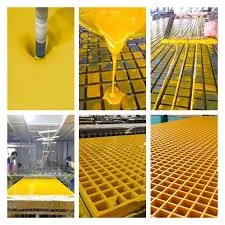
-
 Afrikaans
Afrikaans -
 Albanian
Albanian -
 Amharic
Amharic -
 Arabic
Arabic -
 Armenian
Armenian -
 Azerbaijani
Azerbaijani -
 Basque
Basque -
 Belarusian
Belarusian -
 Bengali
Bengali -
 Bosnian
Bosnian -
 Bulgarian
Bulgarian -
 Catalan
Catalan -
 Cebuano
Cebuano -
 China
China -
 China (Taiwan)
China (Taiwan) -
 Corsican
Corsican -
 Croatian
Croatian -
 Czech
Czech -
 Danish
Danish -
 Dutch
Dutch -
 English
English -
 Esperanto
Esperanto -
 Estonian
Estonian -
 Finnish
Finnish -
 French
French -
 Frisian
Frisian -
 Galician
Galician -
 Georgian
Georgian -
 German
German -
 Greek
Greek -
 Gujarati
Gujarati -
 Haitian Creole
Haitian Creole -
 hausa
hausa -
 hawaiian
hawaiian -
 Hebrew
Hebrew -
 Hindi
Hindi -
 Miao
Miao -
 Hungarian
Hungarian -
 Icelandic
Icelandic -
 igbo
igbo -
 Indonesian
Indonesian -
 irish
irish -
 Italian
Italian -
 Japanese
Japanese -
 Javanese
Javanese -
 Kannada
Kannada -
 kazakh
kazakh -
 Khmer
Khmer -
 Rwandese
Rwandese -
 Korean
Korean -
 Kurdish
Kurdish -
 Kyrgyz
Kyrgyz -
 Lao
Lao -
 Latin
Latin -
 Latvian
Latvian -
 Lithuanian
Lithuanian -
 Luxembourgish
Luxembourgish -
 Macedonian
Macedonian -
 Malgashi
Malgashi -
 Malay
Malay -
 Malayalam
Malayalam -
 Maltese
Maltese -
 Maori
Maori -
 Marathi
Marathi -
 Mongolian
Mongolian -
 Myanmar
Myanmar -
 Nepali
Nepali -
 Norwegian
Norwegian -
 Norwegian
Norwegian -
 Occitan
Occitan -
 Pashto
Pashto -
 Persian
Persian -
 Polish
Polish -
 Portuguese
Portuguese -
 Punjabi
Punjabi -
 Romanian
Romanian -
 Russian
Russian -
 Samoan
Samoan -
 Scottish Gaelic
Scottish Gaelic -
 Serbian
Serbian -
 Sesotho
Sesotho -
 Shona
Shona -
 Sindhi
Sindhi -
 Sinhala
Sinhala -
 Slovak
Slovak -
 Slovenian
Slovenian -
 Somali
Somali -
 Spanish
Spanish -
 Sundanese
Sundanese -
 Swahili
Swahili -
 Swedish
Swedish -
 Tagalog
Tagalog -
 Tajik
Tajik -
 Tamil
Tamil -
 Tatar
Tatar -
 Telugu
Telugu -
 Thai
Thai -
 Turkish
Turkish -
 Turkmen
Turkmen -
 Ukrainian
Ukrainian -
 Urdu
Urdu -
 Uighur
Uighur -
 Uzbek
Uzbek -
 Vietnamese
Vietnamese -
 Welsh
Welsh -
 Bantu
Bantu -
 Yiddish
Yiddish -
 Yoruba
Yoruba -
 Zulu
Zulu
Composite Pipes and Fittings for Marine Construction and Applications in Shipbuilding
FRP Pipes and Fittings in Shipbuilding
The shipbuilding industry has witnessed significant advancements in materials and technologies that enhance the efficiency, safety, and longevity of vessels. One such innovation that has gained prominence is the use of Fiber Reinforced Plastic (FRP) pipes and fittings. Utilizing composite materials, FRP solutions are increasingly becoming preferred choices in various applications, providing numerous benefits to shipbuilders and vessel operators alike.
FRP Pipes and Fittings in Shipbuilding
One of the standout advantages of FRP pipes is their lightweight nature. Vessels have weight restrictions that, if exceeded, can negatively impact performance and fuel efficiency. The reduced weight of FRP compares favorably to metal alternatives, allowing engineers to optimize vessel designs for better stability and reduced fuel costs. Moreover, the installation of lighter piping systems can lower the overall weight of the ship, contributing to increased cargo capacity and improved handling.
frp pipes and fittings for ship building

Corrosion resistance is another compelling reason for the widespread adoption of FRP in shipbuilding. Traditional materials like steel are susceptible to rust and degradation when exposed to saltwater, leading to frequent maintenance and replacement costs. In contrast, FRP pipes and fittings can last significantly longer, sometimes reaching service lifespans of over 30 years with minimal maintenance requirements. This longevity not only enhances the reliability of ship systems but also presents substantial cost savings over time.
The versatility of FRP also extends to its manufacturing processes. FRP pipes can be molded into various shapes and sizes, accommodating complex designs and applications. Customization options enable shipbuilders to create tailored solutions for specific engineering challenges, ensuring that each installation meets the precise needs of the vessel. The ease of fabrication and adaptability further positions FRP as a favored choice in modern shipbuilding.
In addition to performance benefits, FRP pipes and fittings contribute to environmental sustainability. With the increasing regulatory focus on reducing the ecological impact of maritime operations, using long-lasting materials that require less frequent replacement is appealing. Additionally, the lightweight nature of FRP leads to improved fuel efficiency during vessel operation, thus reducing the overall carbon footprint.
In conclusion, the integration of FRP pipes and fittings in shipbuilding represents a forward-thinking approach to enhancing vessel performance and longevity. The combination of their lightweight properties, exceptional corrosion resistance, and customizability provides shipbuilders with innovative solutions that meet the challenges of modern marine engineering. As the industry continues to evolve, the adoption of advanced materials like FRP is likely to play a crucial role in shaping the future of maritime technology and operations, promoting not only efficiency and sustainability but also the creation of safer and more robust vessels.









